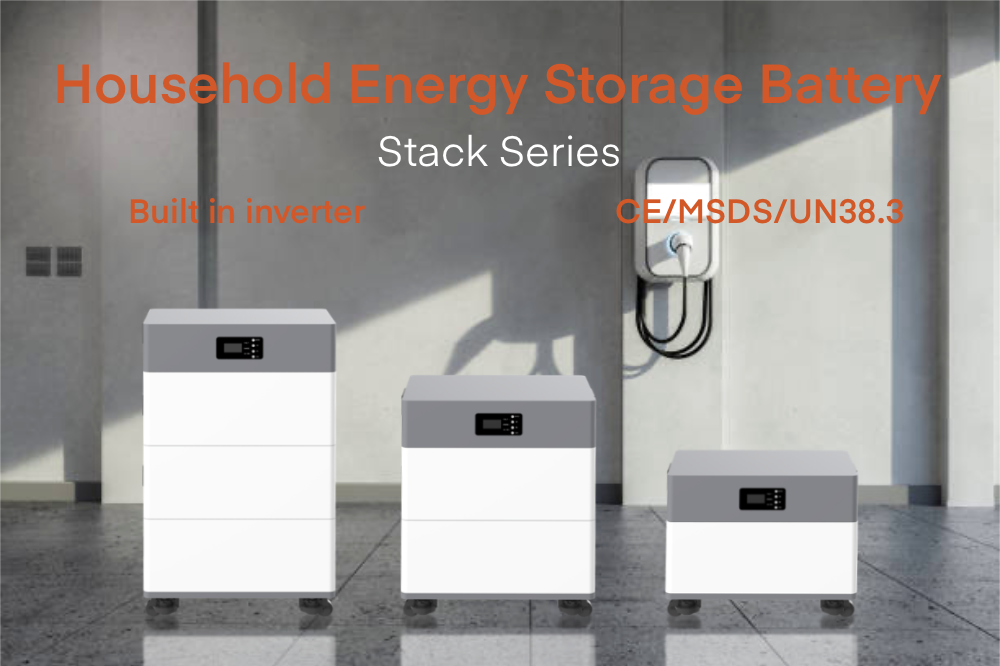2025/10/13
As the global demand for renewable energy continues to rise, home energy storage systems have become a key component of modern smart homes and sustainable living. With the rapid development of lithium battery technology and the increasing affordability of solar energy, more households are choosing to install residential energy storage batteries to reduce dependence on the grid and achieve energy independence.
1. The Core Advantages of Home Energy Storage Systems
(1) Energy Independence and Security
A home energy storage battery allows homeowners to store excess electricity generated from solar panels or the grid and use it when needed. During power outages or peak demand periods, stored energy ensures continuous power supply, offering both energy security and self-sufficiency.
(2) Cost Reduction and Efficiency Optimization
By storing electricity during off-peak hours and using it during peak-rate periods, homeowners can effectively reduce electricity bills. This time-of-use optimization also reduces stress on the public power grid, promoting a more efficient energy ecosystem.
(3) Renewable Energy Integration
Energy storage batteries are crucial in stabilizing the output of solar and wind power systems. They absorb fluctuating renewable energy and release it steadily, enabling households to make full use of clean power while minimizing carbon emissions.
(4) Long Life and Safety
Modern lithium iron phosphate (LiFePO₄) batteries offer a longer cycle life—often exceeding 6000 cycles—and higher thermal stability compared to traditional lead-acid batteries. This ensures both performance reliability and long-term safety for residential environments.
2. Key Applications of Home Energy Storage
(1) Solar Energy Storage Systems
One of the most common applications is in solar-plus-storage solutions, where homeowners store daytime solar power for nighttime use, maximizing renewable energy utilization.
(2) Backup Power Supply
Energy storage batteries can serve as emergency power during blackouts, storms, or unstable grid conditions—an increasingly valuable feature in regions prone to natural disasters or infrastructure issues.
(3) Off-Grid and Hybrid Systems
In remote or rural areas, off-grid energy systems supported by lithium battery storage allow users to operate independently of public utilities, providing stable electricity for lighting, communication, and appliances.
3. Future Prospects and Market Outlook
The global residential energy storage market is projected to grow significantly in the next decade, driven by three main factors:
- Policy Support: Many countries are promoting clean energy and offering subsidies for solar and battery installations.
- Technological Advancement: Continuous improvement in lithium battery efficiency and cost reduction.
- Consumer Awareness: Growing concern for energy independence and environmental responsibility.
According to industry reports, the worldwide market for home lithium battery storage systems is expected to exceed USD 50 billion by 2030, with particularly strong growth in Europe, North America, and Asia-Pacific.
4. Conclusion
Home energy storage batteries are not only a technological advancement but also a practical step toward a sustainable, efficient, and independent energy future. With their advantages in reliability, safety, and cost-effectiveness, lithium-based residential energy storage systems will play a leading role in the global transition to renewable energy.
For professional and high-quality energy storage solutions, Energynice Power Co., Ltd. provides advanced lithium and hybrid battery systems tailored for household and commercial applications worldwide.
Contact us today to learn more about our residential energy storage products and how they can enhance your power efficiency and independence.
📞 Tel/WhatsApp: +86 136 0551 8171
📧 Email: info@energynice.com
🌐 Website: energynice.com

